- Home
- slideshows
- miscellaneous
- 'Emotional chaos': What it's really like emotionally for military families when troops are deployed
'Emotional chaos': What it's really like emotionally for military families when troops are deployed
Learning of a spouse's deployment can mean "emotional chaos."

Partners of those deployed report higher levels of anxiety and stress.
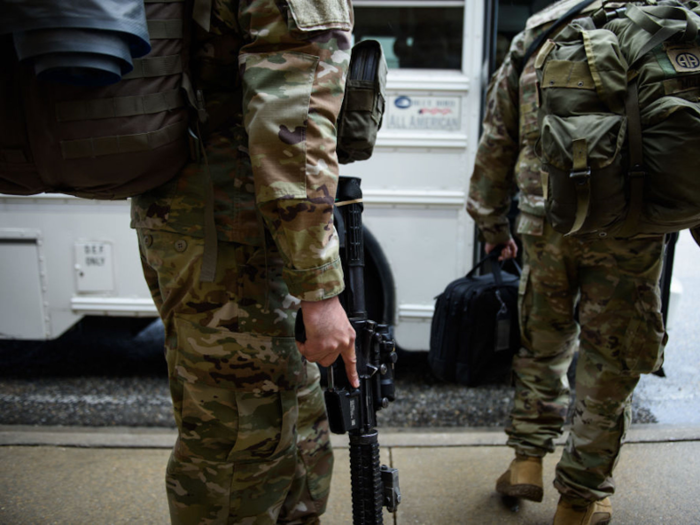
One study of 130 US military spouses (68 spouses of non-deployed servicemen and 62 spouses of servicemen deployed to a combat zone) took a close look at stress.
Spouses of deployed servicemen had markedly higher stress scores than spouses of non-deployed service members, the study found. Additionally, anxiety levels were "significantly higher in spouses of deployed versus non deployed servicemen," the researchers found.
Spouses are at an increased risk for substance abuse.
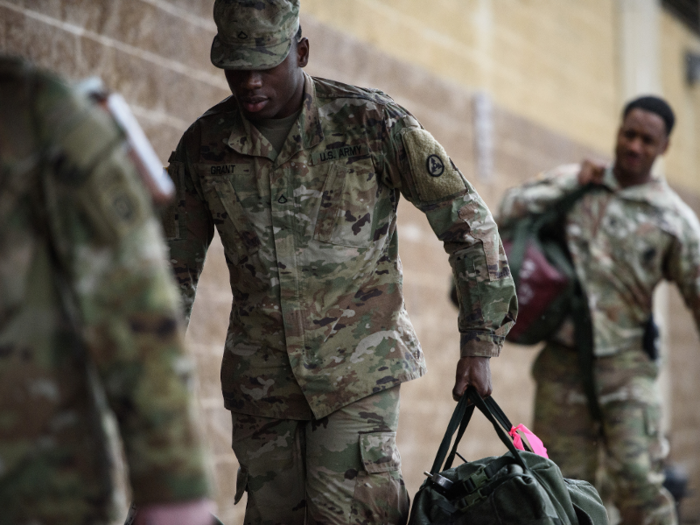
UK-based King's Centre for Military Health Research collected data from 405 women in military families with at least one child.
These women reported higher rates of binge drinking than women in the general population, 9.7% compared to 8.9%, respectively. They also reported higher rates of depression, 7% compared to 3%.
For parents, there's often no room for self-care.
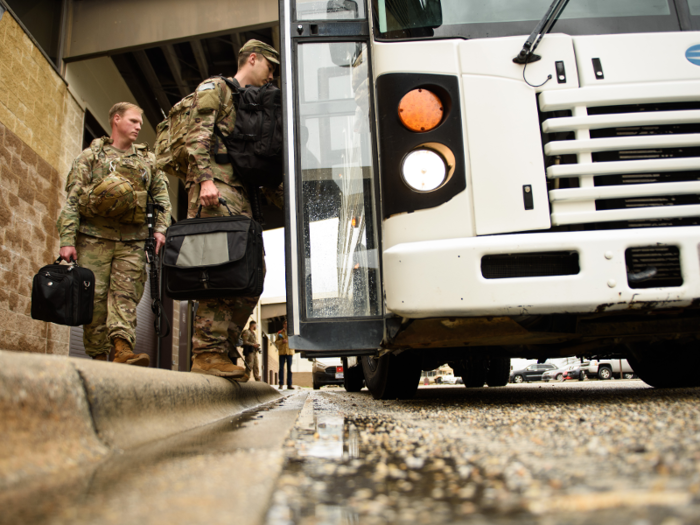
When spouses deploy, many partners are left to take care of their families by themselves.
One 2018 study found that spouses report not having enough time to take care of themselves. As one participant said, when it comes to taking care of themselves, "Everything else comes first." Time to go to the gym and money to buy healthy food is nonexistent, they said.
Children are at a higher risk for depression and other psychosocial issues.
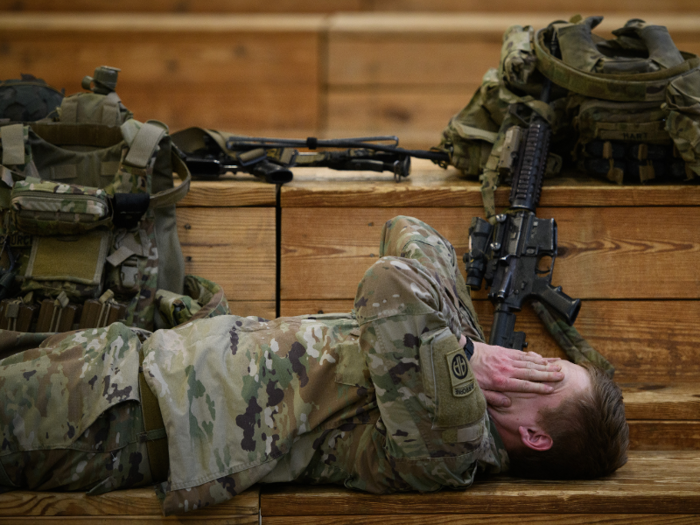
Kids with a deployed parent show higher incidents of lashing out, sadness, worry, and depression, a meta analysis of several studies shows.
Toddlers of deployed parents can experience confusion and separation anxiety.
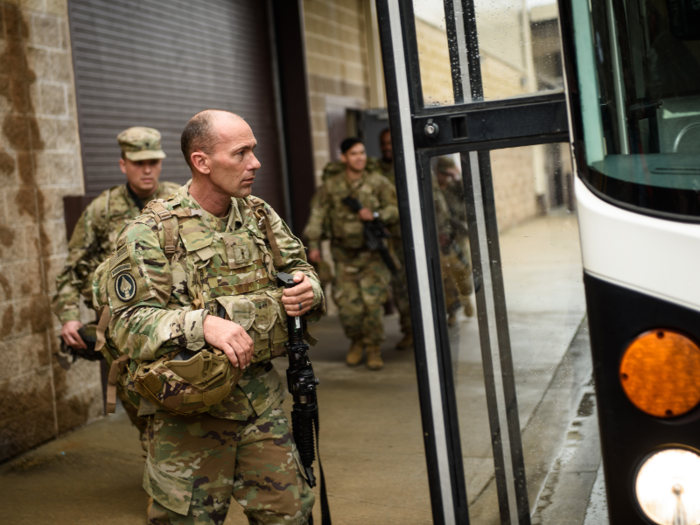
The American Academy of Pediatrics writes on its blog that toddlers "may not understand why mom or dad isn't there for bedtime" and that school-aged children "may worry mom or dad will be hurt."
A 2014 research analysis supports this finding, with author Dr. Suzannah Creech, a research psychologist with Veterans Affairs and a professor at Brown University writing, "For children, deployment-separation can bring a sense of fear, anxiety, uncertainty, and absence."
Trouble sleeping and poor academic performance can weigh on kids.
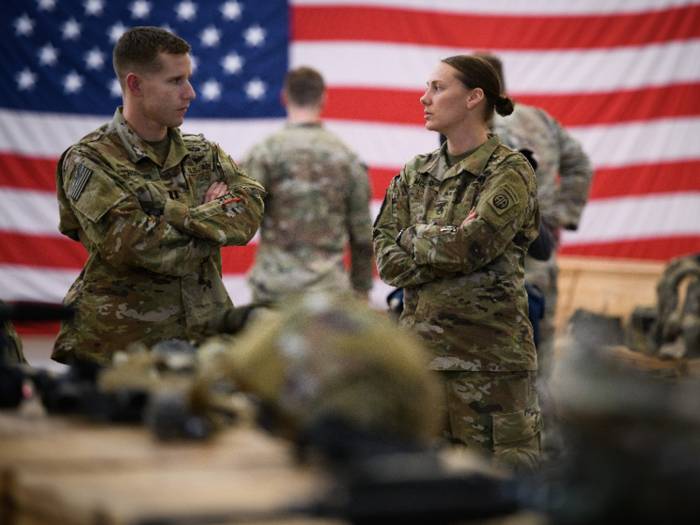
A 2009 study that looked at children ages 5-12 with a deployed parent found that 56% had trouble sleeping and 14% had school-related issues.
Social support and therapy are proven to help spouses and children.
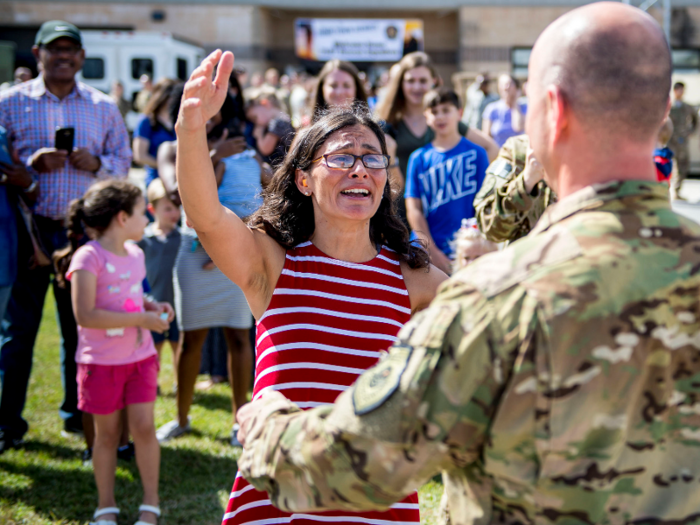
While these findings paint a grim picture, there is help out there for military families.
Studies show that factors such as increased social support and cognitive behavioral therapy, where people learn to challenge their patterns of thought, can greatly help families during and after a loved one's deployment.
Within military families individually, maintaining shared routines, rituals and set rules help keep members feeling stable and grounded. And regular family meetings before, during, and after deployment can be helpful, researchers report.
Editor's note: If you or someone you know is struggling, please call the US National Suicide Prevention Helpline anytime at 1-800-273-8255.
Popular Right Now
Popular Keywords
Advertisement